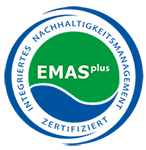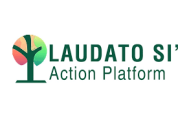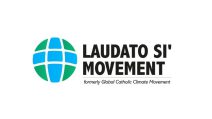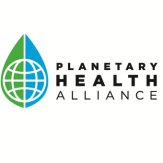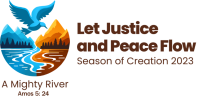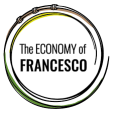Universities and Laudato Si
Laudato Si Best Practice: 30 Years Sustainable Catholic University of Eichstätt-Ingolstadt (Germany)
Milestones and Awards (selection)
The KU work since 1992 in the theory and practice of sustainability (Rio follow-up process) and has received several awards for this:
- 1995 the Altmühltal project was awarded as a National Project of the Federal Republic of Germany (for the European Nature Conservation Year 1995) by Federal President Herzog, who was also the patron.
- The Environment Unit of the Student Convention won the Ideas Generation D 2008 Prize with the initiative Sustainable Campus (100% green electricity for KU)
- In 2015, the KU was the first Bavarian university to be awarded the EMAS certificate for having established an environmental management system (European Union’s Eco-Management and Audit Scheme)
- Since 2017, the KU bears the title ‘Fairtrade University’.
-
In 2018, the KU was repeatedly recognized by UNESCO as an outstanding place of learning for sustainable development
-
2019, the KU is the first university in Germany that holds the EMASplus certificate
The Origins - The Chernobyl Nuclear Disaster
After the Chernobyl nuclear disaster, the Environment Working Group was established 1988 and after the Initial Environmental Check of the University in 1990, the Environment Unit of the Student Convention (Umweltreferat) was founded. The objective was to make the KU to a sustainability leader.
Rio Earth Summit 1992
Accompanying the Rio Earth Summit in 1992 and later as Rio monitoring organized the Environment Unit of the Student Convention the Environmental Lecture Series continued to run up to the present with more than 250 speakers. 1993 The COPERNICUS University Charter for Sustainable Development was signed by KU President Nikolaus Lobkowicz - as the first German university.
Altmühtal Agenda 21 Project (1995-1999)
In 1995 at the initiative of the Environmental Unit of the Student Convention with the support of Council of Europe and as a special contribution to European Nature Conservation Year the St. Francis of Assisi Academy for the Protection of the Earth e. V. (FAA) was founded, which on behalf of the KU implemented the first transdisciplinary sustainability program in Germany (Altmühltal Agenda 21 Project)with 25 projects. The Altmühltal project was awarded as a national project of the Federal Republic of Germany by Federal President Herzog, who was also the patron.
Sustainable University I (1995-1999)
1995 the Project Sustainable University was set up in the Altmühltal project, 1995 a Environment and Sustainability Concept for the Catholic University (KU) was developed. This concept was an important cornerstone for the new sustainability concept 2010.
Ecumenical Impact (1996-2020)
1996 the “Ecumenical Consultation: Christianity and Sustainable Europe - consultation on the new practice of ecological responsibility" with more than 120 participants from over 24 countries was organized. The KU and FAA were represented in Graz with a large delegation and numerous events at the Second European Ecumenical Assembly in 1997 and commissioned by the Council of European Bishops' Conferences responsible for the sustainability area. Outcome of the consultation was an ecumenical consensus on the long-term sustainability practice of European churches in the areas of climate change, biodiversity, Agenda 21 and lifestyles, to implement the initiative for the establishment of a European Christian Environmental Network and a Day and Time of Creation (suggested by Lukas Vischer, FAA Academican). The Francis of Assisi Academy for the Protection of the Earth e. V. were represented (official delegate) at the World Summit on Sustainable Development in Johannesburg in 2002 and at the United Nations Conference on Sustainable Development in Rio de Janeiro in 2012. In 2015 the digital Laudato Si project LaudatoSi.org was launched.
Sustainable University II (2010-2020)
The Environment Unit of the Student Convention won the ideas generation D 2008 with the initiative Sustainable Campus (100% green electricity for KU) .] The since 2011 DenkNachhaltig! e. V. organized annually the WFI Dialogue on Sustainability, which is the largest student conference on sustainability and economy in Germany. 2010 took place the anchoring of sustainability in the Foundation Constitution of the Catholic University, and a Sustainability Concept was developed with a graduate program for sustainability. Since 2012, the power of the university is supplied with 100% green electricity, reducing 4.100 tons of CO2 in three years. 2012 first Sustainability Report was published. 2013 the German Commission for UNESCO awarded the sustainability concept of KU as a project of the UN Decade "Education for Sustainable Development". 2015 KU has been certified as the first university in Bavaria to EMAS.
The KU was awarded the title “Fairtrade University” in 2017 and was the first university in Germany to be awarded the “EMASplus” certificate in 2019. In summer 2019, the KU was the first university in Germany to undergo an evaluation process with its Overall Sustainability Concept being assessed by external experts.
Among the wide range of sustainability activities in all six action areas, these two major projects should be highlighted in particular: The project ‘Laudato Si’ that aims to open up the papal encyclical to wide discussion and analyze its effectiveness, as well as the transfer project “Mensch in Bewegung”, which has set up a sustainability cluster to promote sustainable development in the region.
All developments at the KU in connection with sustainability are published in an annual sustainability report since 2012.
Sustainable University III (2020-)
2020 the Overall Sustainability Concept 2020 to 2030 “Sustainabilty Vision and Mission of the Catholic University of Eichstätt-Ingolstadt” started.
The present concept was developed by the Sustainable Development Coordinator of the Catholic University of Eichstätt-Ingolstadt (KU) in collaboration with her employee, the Campus Environmental Manager and the steering group “Sustainability & Fair Trade” that includes members of all departments and status groups at the University as well as representatives from the sustainability cluster within the transfer project “Mensch in Bewegung”.The framework paper “Education for sustainable development – vision and mission of the Catholic University of Eichstätt-Ingolstadt” that preceded this concept was first approved in a meeting of the University Management on December 1, 2010. Since then, it serves as
Sustainable Development Vision and Missi[...]
PDF-Dokument [450.7 KB]
Event series, education and research project by the Catholic University of Eichstätt-Ingolstadt (KU)and the Federation of German Scientists (VDW)
KU-Eichstätt-Laudato-Si-Project.pdf
PDF-Dokument [2.9 MB]
Catholic University - Sustainability Rep[...]
PDF-Dokument [8.7 MB]
edX-Course Laudato Si: On Care for Our Common Home (SDG Academy)
What is “Laudato Si”? First presented by Pope Francis – spiritual leader to the world’s 1.2 billion Catholics – to his faith-based cohort, it is a call to action addressed not only to Catholics, but to all people of the world. Laudato Si’: On Care for Our Common Home raises the profile of the grave ecological crisis that humanity has created and issues a moral clarion call for urgent action to protect the earth and its inhabitants from ruin.
Research Project Fund
Since 2018, IFCU has a funding tool for academic and social cooperation projects. The Laudato Si’ Endowment Fund aims to support a policy of developing research programs in the humanities and social sciences in Catholic higher education institutions worldwide.
ifcu_guidelines_endowment_fund_eng-2.pdf
PDF-Dokument [95.9 KB]
Conferences
Universities Response and Resouces
Catholic University of Eichstätt-Ingolstadt (KU): Sustainable University
Loyola Marymount University, Los Angeles, California: Spring 2016 Series: Laudato Si' and Climate Change
Marian University – Indianapolis : Reading Laudato Si’ through Franciscan Values Jason T. Eber (PDF)
University of Daton: Laudato Si' - Everything is Connected: Teaching Pope Francis' "Integral Ecology"
Yale: "Laudato Si Online Conference"
Franciscan University of Steubenville: Interdisciplinary Symposium on Laudato Si'
Marianne Heimbach-Steins & Nils Stockmann : „Pope for Planet“? Laudato Si‘ als „dringliche Einladung zum Dialog“ (LS 14) und das weltweite Echo auf die Enzyklika. Sozialethische Arbeitspapiere des Instituts für Christliche Sozialwissenschaften. University Munster
Laudato Si’ emboldens every Jesuit university to become an institutional leader in moving purposefully toward a just, humane,and sustainable world. The encyclical is a remarkably visionary, comprehensive and prescient document a truly pathbreaking call to action.
Jesuit Universities - Laudato Si.pdf
PDF-Dokument [268.6 KB]




